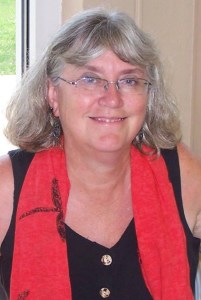
December 21, 2014
Snowfall
by Debra R. Borys
A tattered stuffed panda bear lies in one corner of the room. Plaster from the wall has littered its black coat, and one eye is replaced by a crudely stitched x. A child lived in this hovel once, hard to imagine as I take in the rotted walls, bare couch springs, littered newspapers, beer cans and cigarette butts. Winter’s chill enters the unheated room through one dirty, broken window. Even the graffiti once slashed across the paint has crumbled beneath the weight of damp and neglect.
To think Snow has been living in this. Snowflake, tiny daughter of my great niece, grown to a young woman with unwashed hair and wild eyes. Her face had been round and alert when Winter Rose first brought her to the reservation, brown and healthy, a true Yakama miyánash, no trace of her Mexican father in her at all.
From the shadow of powerful Mount Rainier to the alleys and abandoned houses of Chicago’s west side. A long fall for a daughter of the people.
“What are you doing here?”
Snow’s words sound startled, defensive, but when I turn to face her she stands proud and brave as any warrior. Her straight black hair has been dyed red at the ends, like flames that lick at the dark night. Metal pierces her ears and nose, and dirt creases the rim of her neck. Were she holding a bow and arrow I would fear for my life. Instead, I settle to the floor in a gesture of peace, legs crossed, arms resting on my knees.
“I am your uncle. I have come to take you home.”
She did not expect it, I see that in her eyes, but surprise does not stagger her for long. “This is home now. My family is my friends from the street. We take care of each other.”
“Like the boy who cut this own throat?” I ask. “Or the one who sells your body for food?”
“I sell my body,” she responds in anger. “No one controls me, not him, not you. I make my own way, my own decisions.”
"And you choose this?” I sweep my arm to present the debris and decay. “Do you not remember the wheat fields of your childhood, the horizon of mountains, the community of your tribe?”
“I remember a drunken mother. And being hungry and scared.”
“Your mother is dead.” I say this quietly because she knows. Her mother died long ago, before her father found Snow and brought her here to this city where there is no fresh air nor red tail deer. Instead of the call of the Song Sparrow, she hears curses and car horns.
“Exactly. There’s nothing for me back there.”
But I hear sadness in her words, longing. Not for the loss of poor Rose, whose addiction became her totem so that she could see nothing else. Not even for the meandering banks of the Toppenish River of Snow’s childhood. Longing because there is nothing for her here, either.
“When my grandfather was young,” I begin, and my words and tone bring back memories of my own childhood, of stories told by Grandfather around an open fire. “Government men came and took him from his tribe. All the children were to go to boarding school, to be educated. They spent many months away from their families, often with no word from home because many parents could not read or write. Visits home were sometimes denied for no reason, even if a loved one were dying. The children were not allowed to speak their own language or dress in their own clothes. They were to learn a trade, they were told, to become integrated into the white man’s world, but mostly they were taught to hate who they were born to be.”
Snowflake sits on the floor now, leaning against the door jamb, pulling absently at the frayed threads of the discarded panda bear. Her eyes are turned from me, but she is listening.
“When the school shut down, many children who returned to their homes were ashamed of their mothers and fathers, of themselves. Some drank and fought to forget their shame. Some left the reservation, thinking they could belong to that other world, but your grandfather knew that to belong to any world, you must first grow roots in your own.”
It has begun to snow outside, but there is no wind. The flakes fall crisp and cold past the broken window panes and land on the dirty sill, covering its ugliness with a fresh coat of white. The girl watches also, her face tilted to the evening light just beginning to recede from the sky. I see in her smooth brown cheek a reminder of that tiny miyánash wrapped in blankets I first met one clear winter’s night.
“Have you, too, Snowflake Goldenhawk of the Yakama people, learned to hate who you were born to be? Or will you fight like your Grandfather to remain proud of who you are?”
She does not look at me or answer. But no response is better than one of contempt. Having said all I can say, I rise to leave, touching her on the shoulder as I pass. Outside again, I pause and listen for footsteps behind me. Raising my face to the clouds, I wait and watch as snowflakes fall.

Write City Ezine is currently closed to submissions. See submission guidelines for further information.
Affiliates/Partners
Testimonials
Contact
Join CWA
Member Profile
My Account
Writers Conference
Presenters
Agents and Publishers
Pitch Sessions
Sponsors
Scholarships
Speaker Registration
Book of the Year
Spirit Award
First Chapter Contest
Resources
Home
Chicago Writers Association
info@chicagowrites.org
Make a Difference!

